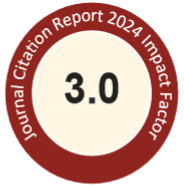Abstract
Pharmacogenomics is the study of drug treatment responses in subgroups of patients on the basis of their genetic variants or genetic expression information. In 2006, the government of Taiwan launched a methadone maintenance treatment program, which is usually prescribed for patients with heroin dependence. In this study, 366 patients who had taken methadone continually in the previous 7 days were examined. Data from the Treatment Outcomes Profile (TOP), Severity of Dependence Scale (SDS), Clinical Opioid Withdrawal Scale (COWS), and Treatment Emergent Symptoms Scale (TESS) were obtained from the patients' report records. The genes CYP2B6, CYP3A4, and CYP2C19dwhich encode the liver cytochrome P-450 (CYP) enzymes that are involved in the metabolism of methadonedwere selected and genotyped in this cohort. We found that single nucleotide polymorphisms (SNPs) on the CYP2B6 gene were associated with the plasma S-methadone concentration. The SNPs on the CYP3A4 gene were associated with withdrawal symptoms and side effects. The SNPs on the CYP2C19 gene were associated with the methadone dose. The SNPs in the genes (e.g., UGT2B7) encoding the morphine phase II metabolic enzyme were associated with the withdrawal symptom scores. In pharmacodynamic genes, the SNPs on the OPRM1 gene were associated with the side effects of insomnia and change in libido. We conclude that SNP markers may be useful in the future for adjusting methadone dosage and for reducing adverse reactions. Copyright © 2013, Food and Drug Administration, Taiwan.
ScienceDirect Link
Recommended Citation
Wang, S.-C.; Tsou, H.-H.; Ho, I.-K.; Lin, K.-M.; and Liu, Y.-L.
(2013)
"Pharmacogenomics study in a Taiwanese methadone maintenance cohort,"
Journal of Food and Drug Analysis: Vol. 21
:
Iss.
4
, Article 27.
Available at: https://doi.org/10.1016/j.jfda.2013.09.036
Creative Commons License

This work is licensed under a Creative Commons Attribution-Noncommercial-No Derivative Works 4.0 License.
Fulltext URL
https://www.sciencedirect.com/science/article/pii/S1021949813001002/pdfft?md5=ee51b6700dc43e3ef5f41f97960c2afe&pid=1-s2.0-S1021949813001002-main.pdf
Included in
Food Science Commons, Medicinal Chemistry and Pharmaceutics Commons, Pharmacology Commons, Toxicology Commons

